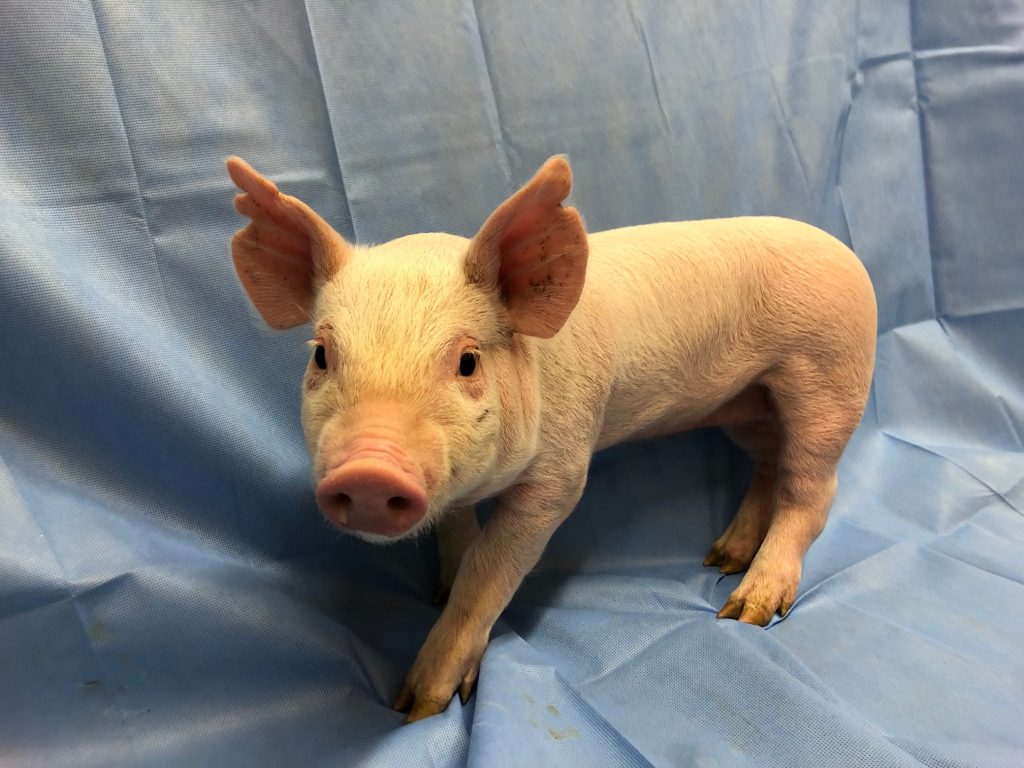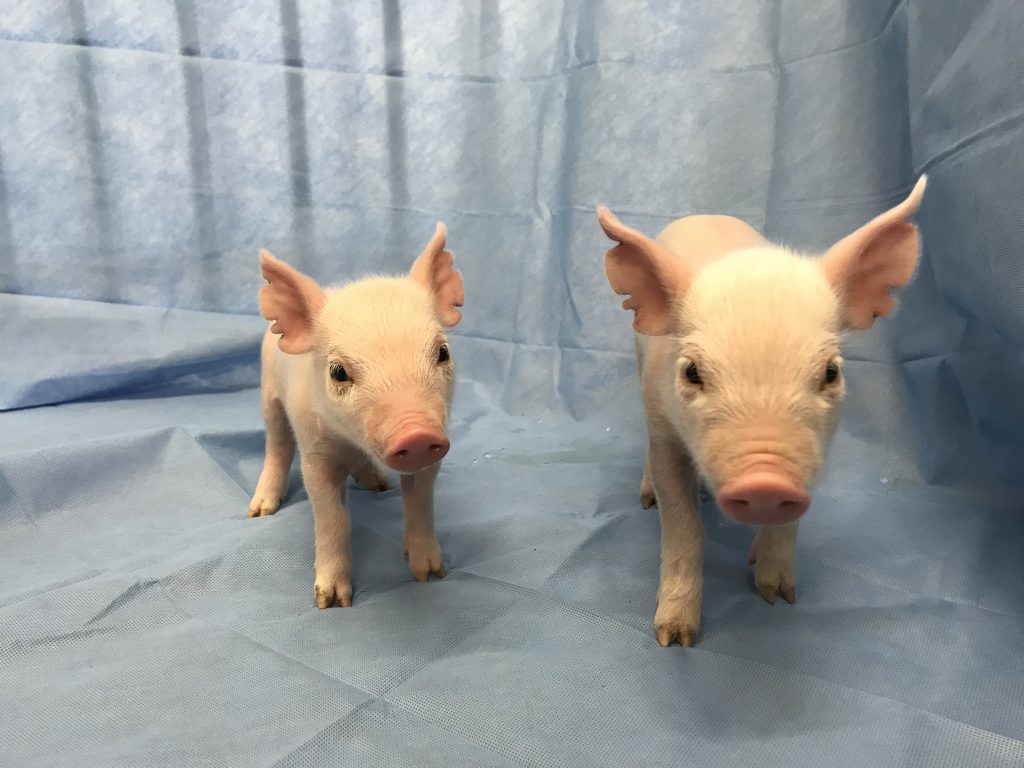

Fanconi anemia (FA) is a complex, autosomal-recessive disorder that disrupts a critical DNA repair protein pathway thereby preventing the repair of interstrand-crosslinks (ICLs). Patients with null or hypomorphic FA mutations can present with a variety of congenital and developmental abnormalities. FANCA exon 4 in pig oocytes was targeted using the CRISPR/cas9 system followed by in vitro fertilization and implantation of targeted morula/blastocysts into surrogate females. Resulting pigs displayed skeletal abnormalities and extreme sensitivity to interstrand DNA cross-linking agents.
Using a similar CRISPR/Cas9 approach, FANCD2 was targeted in exons 31 and 32 of the FANCD2 gene. Breeding pairs of FANCD2 targeted pigs, produced four F1 litters with a total of 28 piglets. Although it was anticipated that 25% of piglets produced would have biallelic out-of-frame mutations, none were detected at birth, a finding consistent with embryonic lethality.
- Hergert B, Whitworth KM, Goldman DC, Moreau L, McQueen K, Parmar K, D’Andrea A, Samuel MS, Wells KD, Prather RS, Dorell C, Grompe M, Fleming WH. A porcine model of Fanconi anemia. PLoS One. 2025 Oct 31;20(10):e0335854. doi: 10.1371/journal.pone.0335854. PMID: 41171815; PMCID: PMC12578174.